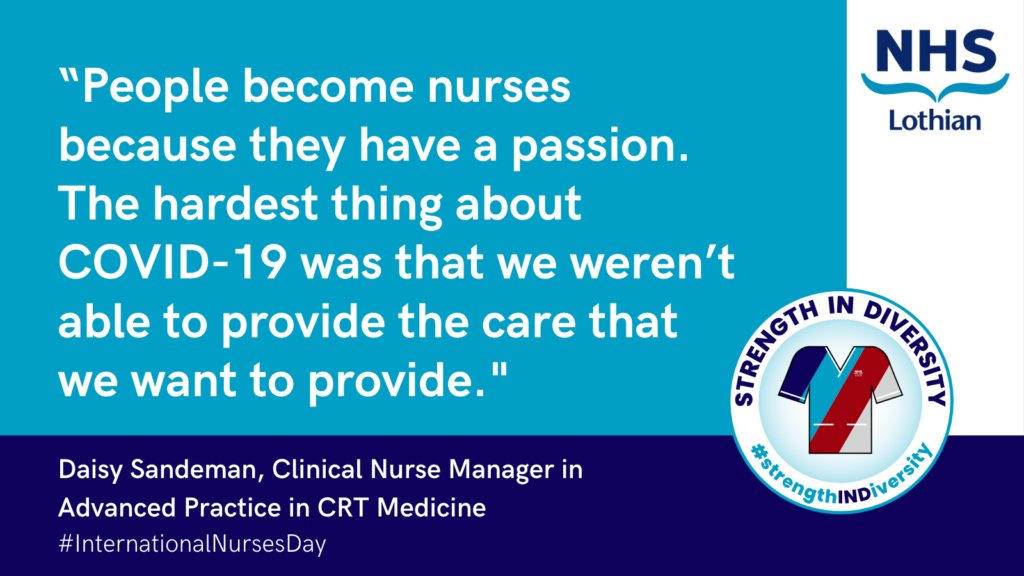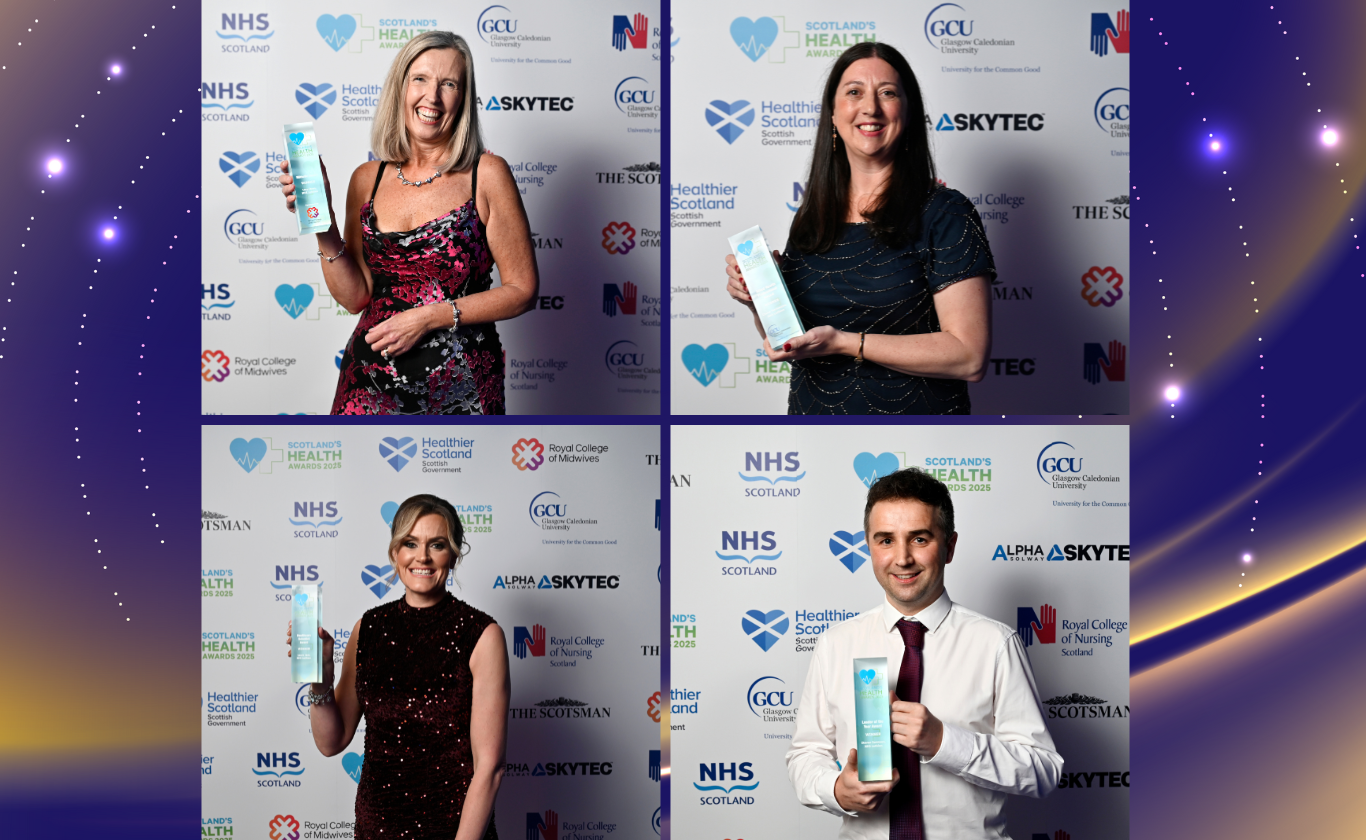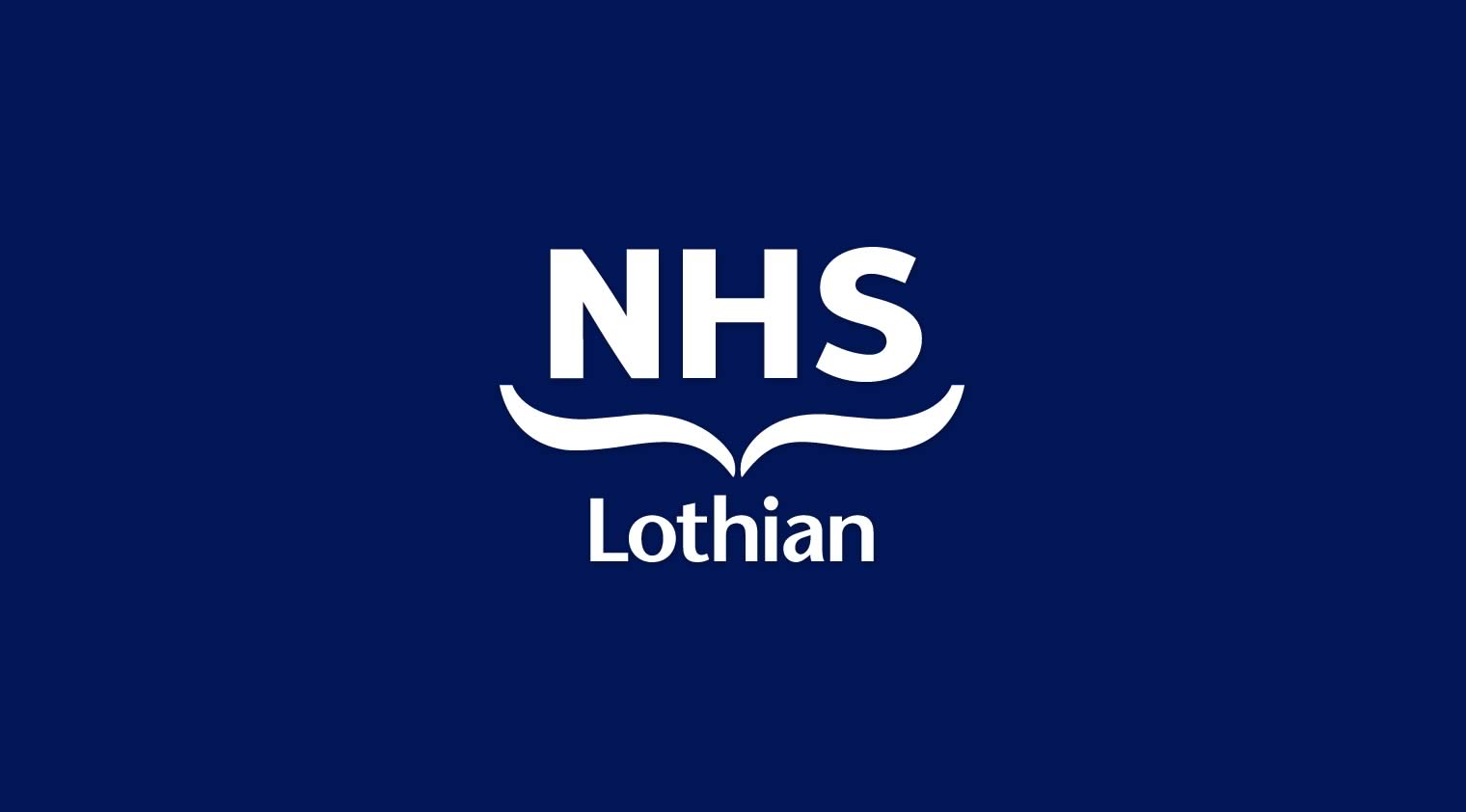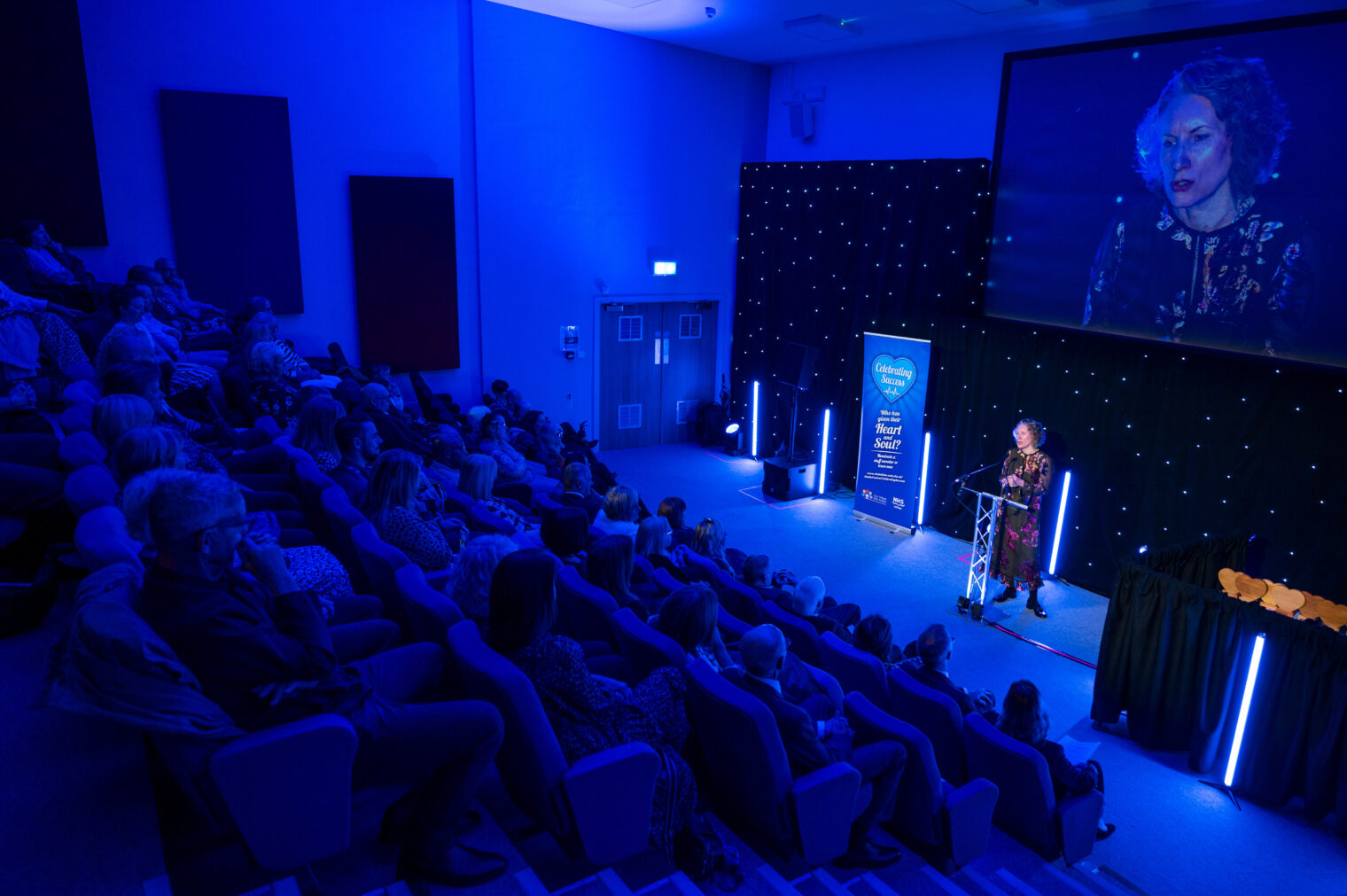“I hope we can get to a point where people are known only for the work they do, not for their race, gender or anything else.”
Daisy Sandeman is a Clinical Nurse Manager in Advanced Practice in Cardiothoracic and Respiratory Medicine. Starting as a nurse, she became an Advanced Nurse Practitioner (ANP) in 2007 and stepped into her new role in 2019. Originally, she was meant to be looking after and providing guidance to ANPs and specialist nurses within Cardiothoracic and Respiratory, and her role was meant to be 30% clinical.
The pandemic changed all of that.
Daisy and her team received COVID-19 patients in March 2020, and her role became completely different. She needed to lead her team and support the site development of RIE as they prepared for the pandemic. Most of all, she needed to use her leadership skills and clinical expertise to protect patients with COVID-19, patients without COVID-19, and the staff who were working with and around them.
“People become nurses because they have a passion,” Daisy says. “For most of us, this is a calling. The hardest thing about COVID-19 was that we weren’t able to provide the care that we want to provide because of staffing shortages and pressures.
“That’s where a good leader needs to focus and shine the light on the moments of care that we still manage to make happen. I had staff coming in on breaks or coming in early to their shifts to sit next to patients, or to get extra time for handovers so they could learn more about how the patients had been in the last twelve, fourteen hours since they were on shift. That was amazing, and something I highlighted. You need to celebrate those moments and those small achievements, because otherwise you will not get through it.”
Recently, Daisy spoke to a senior nurse who was had just taken seven days straight of annual leave. “It was the first time since March 2020 that she felt she didn’t have to come in during her annual leave to fix something or support someone in crisis,” Daisy says. “For two years, we have had that weight upon us, and it is almost harder now that the weight is lifting.
“Coming into COVID was difficult, and so was maintaining equilibrium during it. But we always knew that coming out of COVID was going to be the hardest part.”
Daisy is now moving towards her original job description, but she acknowledges the toll that the last two years have taken on her and her team. “Resilience is a very popular word these days, but it really fits here,” she says. “It has been incredibly difficult, and it will continue to be difficult. But my team have been amazing. I have found light in the most unexpected corners.”
As the pandemic disproportionately affected some ethnic minorities, Daisy kept a vigilant eye on her team. Those who had family in other countries and needed to leave were supported to do so, and everyone stepped up to provide the extra support for those who needed it. “Personally, I regretted the last time I went home to visit India,” Daisy says. “I was not mindful of the simple pleasures. I usually go back two or three times a year, so I imagined I would be back much sooner. I think that’s something we’ve all learned from this experience, to not take things for granted. I try to enjoy the simple things now.”
When it comes to diversity, Daisy hopes that one day, everyone – no matter their race, gender, sexual orientation or anything else – will be known only for the work they do, everything else being equal. “We all want to belong,” she says. “Not because we fit a checkbox, but because we’re qualified and we’ve earned that spot.”























